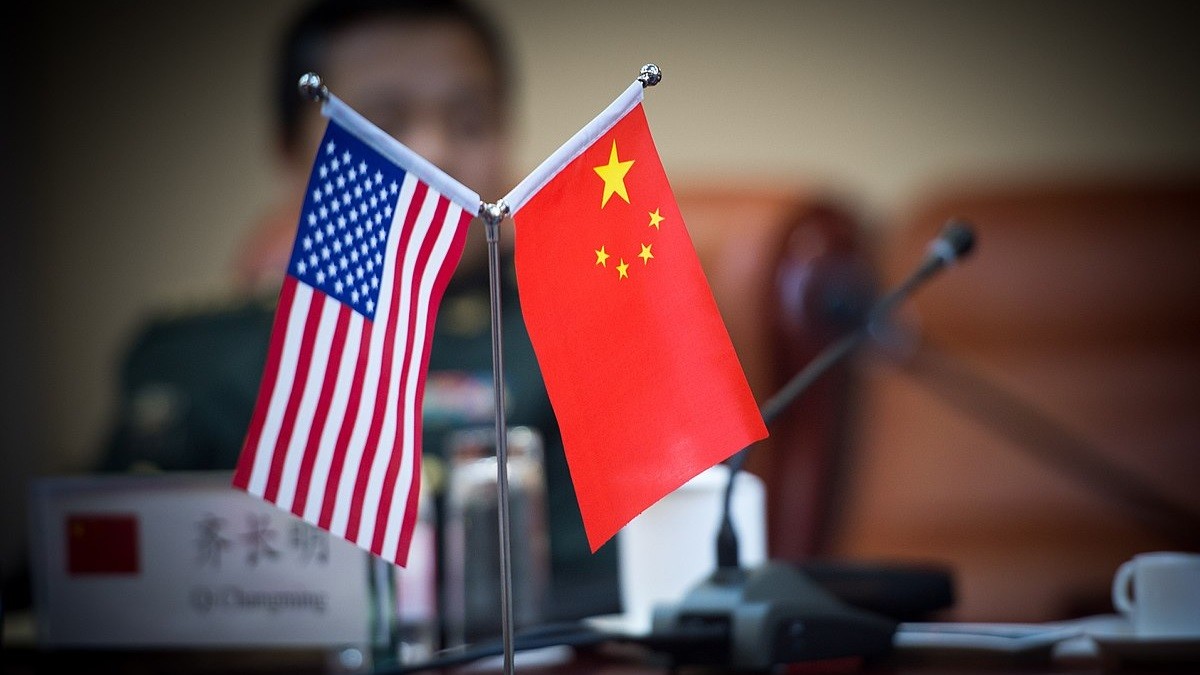Politics
Balancing Act: De-risking, Diversifying and Ethical Trade with China”

Knowledge Nuggets:
- The U.S. continues to be the largest importer of goods from China, with imports reaching over $536 billion in 2022, sparking concerns about over-reliance on a single nation.
- The G7 leaders recently issued a statement emphasizing the need for “de-risking and diversifying” from China, while rejecting “decoupling or turning inwards.”
- Hong Kong Watch CEO Benedict Rogers underscores the precariousness of being heavily dependent on China, highlighting China’s alleged human rights abuses and controversial actions, such as handling the COVID-19 pandemic and the threat towards Taiwan.
America’s reliance on China for imports hit a record $536 billion in 2022, according to the U.S. Bureau of Economic Analysis. This staggering figure has raised concerns among policymakers and analysts about the associated risks of such a concentrated trade relationship.
In light of these concerns, G7 leaders have emphasized the importance of “de-risking and diversifying” trade relationships, while rejecting a complete decoupling from China. Benedict Rogers, CEO of Hong Kong Watch, weighed in on the matter, expressing unease about the U.S.’s high dependency on a regime facing allegations of human rights abuses and violations of international treaties.
De-risking and diversifying, Rogers explained, could involve increased domestic production and investment in other, less risky countries. The intention would not be to completely sever ties with China, but rather to reduce vulnerabilities and ensure more balanced trade relationships. This approach aligns with the G7’s rejection of turning inward, highlighting the complex balance between international trade, economic security, and ethical considerations.
China’s contentious stance on several issues, from the treatment of Uyghur people to the handling of the COVID-19 pandemic, raises important questions about how the U.S. and other nations can trade ethically with China. As countries seek to navigate this complex landscape, strategies that promote diversification and risk reduction will likely be paramount in the discourse.
Clear Thoughts:
We’ve been told that globalization is good for us. It leads to a booming economy, they say. But what happens when we place all our eggs in one basket, particularly when that basket belongs to a regime like China? The economic data reveals a worrying trend – the U.S imported a record $536 billion worth of goods from China in 2022. To me, that’s not an indicator of prosperity, but rather a red flag of over-reliance.
The G7 leaders acknowledge the need to “de-risk and diversify” from China. It’s a recognition that we’re entwined with a nation that stands accused of horrendous human rights abuses and violation of international treaties. Benedict Rogers of Hong Kong Watch couldn’t have said it better – it’s a dangerous situation to be in.
But what does “de-risking and diversifying” mean? It doesn’t call for a full-blown decoupling from China, nor does it advocate for isolation. Rather, it’s about rebalancing. It’s about bringing production home, investing in less risky countries, and ensuring that our economy isn’t left vulnerable to the whims of a single foreign power.
It’s also about holding our trade partners accountable. It’s about making sure we’re not indirectly supporting regimes that trample on human rights or break international norms. It’s about ethical trade.
We can’t continue to ignore the elephant in the room. We must confront the risks of over-dependency on China, and take bold steps towards a more balanced, resilient, and ethical global economy. It’s high time we put America’s long-term economic security first.

Gerald Scott Ladd
June 21, 2023 at 7:27 am
The US is in a dangerous situation with the brain dead idiot in the WH.
J D D
June 21, 2023 at 7:39 am
The United States has been deindustrializing for the past 50 years. It can and should adopt a policy to rebuild it infrastructure and manufacturing base without scapegoating on China, which has years ago surpassed the US economy and short of nuclear war, cannot be stopped. It is up to the American people to dump the endless wars, “green new deal,” and the casino economy. First steps: reinstate Glass-Steagall putting the entire banking system through bankruptcy proceedings; nationalize the Federal Reserve and then redirect trillions of credit into modern infrastructure based on nuclear energy and related advanced technologies. No more windmills or solar reflectors.